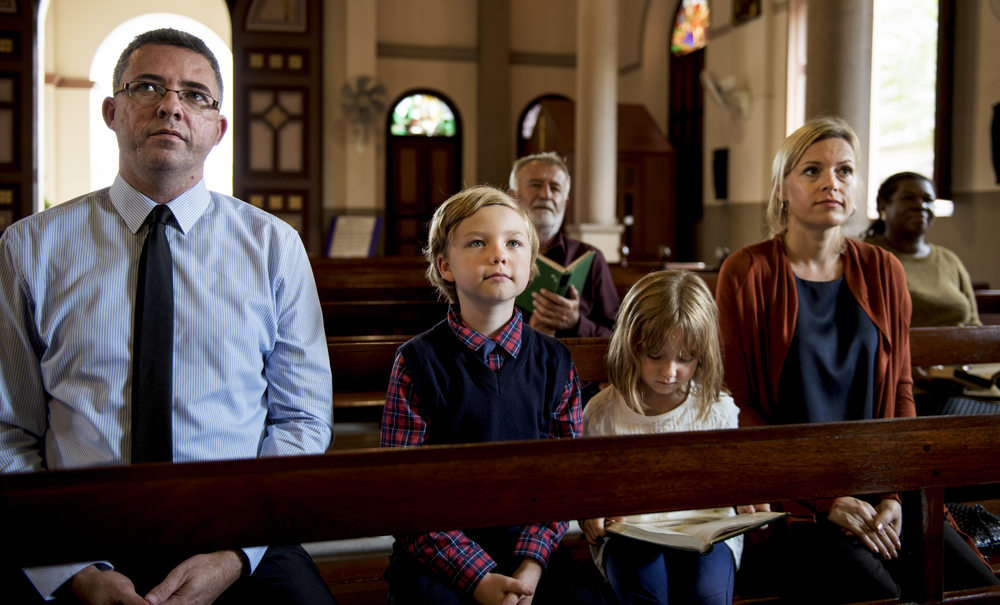Every family has its hot-button issues—the topics that turn a normal dinner into an emotional battleground faster than you can say pass the potatoes. It’s not just what you say, it’s how it lands. These conversations tap into old wounds, buried resentments, and unspoken power dynamics that will come roaring to the surface the second they’re mentioned.
If you want to keep the peace, steer clear of these. But if you do bring them up? Buckle up, because you’re about to witness a full-on family drama unfold in real time.
1. Who Gets What in the Will

Nothing says let’s destroy the vibe like a casual mention of inheritance. In a detailed study on inheritance and family conflicts, researchers Misa Izuhara and Stephan Köppe analyze how asset transfers across generations can cause or intensify disputes within families. Their work highlights how misunderstandings of inheritance laws, contested intentions, and unexpected timing of transfers contribute to tensions, revealing the delicate balance between family autonomy and dependency. Even if the family patriarch or matriarch is still alive and well, the mere thought of who gets what can turn siblings into silent rivals. It unearths every childhood slight, every perceived favoritism, and every fear about being left behind.
And here’s the kicker: no one wants to admit they care about money, so the drama brews under the surface, disguised as “concern” or “fairness.” This topic? It’s a guaranteed emotional grenade.
2. Political Beliefs

Red or blue, progressive or conservative, it doesn’t matter—once politics enters the chat, the gloves come off. What starts as a “friendly debate” quickly turns into personal attacks, rolled eyes, and passive-aggressive jabs. The generational divide only makes it worse, with older relatives often dismissing younger perspectives as naive or radical.
It’s not just about issues—it’s about identity, values, and who gets to define what’s “right.” And in families, that fight runs deep.
3. Parenting Choices

From screen time to discipline to whether you’re raising your kid “right,” this is a landmine waiting to go off. Everyone has an opinion, and they’re not shy about sharing it. Your mom thinks you’re too soft, your sister thinks you’re too strict, and suddenly a casual chat about snacks turns into a full-blown parenting war.
What’s worse? It’s rarely about the kids—it’s about control, validation, and whose way is “better.” And that never ends well. Research from the University of British Columbia shows that frequent parental disagreements about child-rearing are linked to greater emotional and behavioral problems in children, highlighting the importance of how parents negotiate and resolve their differences.
4. Money and Spending Habits

Ask someone how much they make, what they paid for their house, or how they’re affording that vacation, and just watch the tension rise. Money talk exposes power imbalances and stirs up envy like nothing else. It’s not about the numbers—it’s about the unspoken comparisons.
According to research from Coventry University’s Centre for Business in Society, having conversations about money can significantly improve financial decision-making, boost financial resilience, and reduce anxiety and stress. Family members will judge, question, and critique—often with a smile—and you’ll leave wondering why you shared in the first place. Some topics are better left off the table, and this is one of them.
5. Who’s the “Favorite” Child

Even if no one admits it, every family has a ranking. The moment this topic comes up—whether it’s an offhand comment or a sarcastic joke—the old sibling rivalries resurface like they never left. Resentments bubble up, old wounds reopen, and suddenly it’s like you’re 12 again, fighting over who gets the last slice of pizza. As noted by the American Psychological Association, parental favoritism is a real and common phenomenon influenced by factors such as personality traits, birth order, and gender, which significantly affect family dynamics and sibling relationships.
The worst part? The parent in question usually denies there’s a favorite, which just makes it worse. Everyone knows the truth; no one says it out loud.
6. Weight, Diets, and Bodies

Comments about who’s gained weight, who’s lost it, or who “looks good” these days are never as harmless as they sound. Body talk is laced with judgment, projection, and often thinly veiled criticism. It’s not about health—it’s about control and comparison.
For many, this topic reopens old insecurities planted in childhood. And once it’s out there, the room’s energy shifts—and not in a good way.
7. Religion and Faith

Belief systems run deep, and when they clash within families, it’s never just a philosophical debate. It’s a battle over identity, belonging, and the “right” way to live. Parents worry you’ve lost your way, siblings throw around words like “judgmental” or “closed-minded,” and suddenly, the conversation is a moral battleground.
It’s not about finding common ground—it’s about who’s right and who’s wrong. And that fight rarely has a winner. As explained by Marriage.com, religious conflicts in families often stem from deeply rooted differences in values and beliefs, which can escalate into significant tension and emotional struggles within family relationships.
8. Gender Roles and Feminism

Bring up pay gaps, household labor, or why Aunt Carol thinks women “have it easy these days,” and you’ll see the sparks fly. These conversations don’t just stir up opinions—they tap into generations of unspoken frustration and deeply ingrained beliefs. The room can go from zero to hostile in seconds.
It’s not just a topic—it’s a mirror for who feels seen, who feels silenced, and who’s unwilling to let go of old power dynamics.
9. Who’s “Too Busy” to Visit

When someone drops a comment about never hearing from you or missing family events, it’s rarely a casual observation. It’s a passive-aggressive jab designed to make you feel guilty for having a life. The “too busy” conversation always spirals into a debate about who’s really putting in effort and who’s just too selfish to make time.
Spoiler: it’s never just about the visit. It’s about expectations, resentment, and who feels left out.
10. Marriage and Relationship Choices

Single? They’ll ask why. Divorced? They’ll speculate. Child-free? They’ll question it. The family’s need to insert themselves into your relationship status is relentless, and the judgment is often wrapped in faux concern.
This topic feels like a free-for-all for people to project their own choices onto you. And no matter how you answer, it’s never enough.
11. Career Decisions

Your job isn’t just a job in family conversations—it’s a reflection of your worth. If you’re not climbing the corporate ladder, they’ll wonder why. If you are, they’ll question your priorities. It’s a lose-lose game.
Every comment is laced with comparison and subtle (or not-so-subtle) judgment. And suddenly, you’re defending your entire life path at Thanksgiving dinner.
12. Mental Health and Therapy

Talking openly about therapy or mental health struggles can quickly turn into a minefield. Some family members will dismiss it, others will judge, and a few might even weaponize it against you later. It’s a conversation that reveals who’s emotionally evolved—and who’s still stuck in just tough it out mode.
What should be a supportive topic often becomes a source of stigma and discomfort. And once it’s out there, it’s hard to take back.
13. Parenting Grandkids (or Lack Thereof)

Whether it’s the grandparents who think they know better or the childfree adult who’s tired of being asked when it’s their turn, this topic rarely stays chill. Everyone has an opinion about how kids should be raised—or whether they should exist at all. It’s a breeding ground for judgment, guilt trips, and boundary-crossing advice.
The tension is thick because it’s personal. It’s about legacy, values, and who’s seen as “doing it right.”
14. Family History That No One Wants to Talk About

Bring up that estranged uncle, the messy divorce, or the family member no one mentions, and you’ll feel the air leave the room. These are the stories wrapped in shame, secrecy, and unresolved pain. And once you crack them open, you can’t control what spills out.
It’s not just gossip—it’s unprocessed trauma. And you’ll see the tension snap the moment the words leave your mouth.
15. The “Right” Way to Spend Holidays

Who’s hosting, who’s coming, what’s being served—every detail is a potential landmine. The moment you challenge tradition, suggest a change, or mention splitting time between families, the drama starts. It’s not about logistics—it’s about control, nostalgia, and who feels prioritized.
Holidays expose every unspoken power dynamic in a family. And this conversation? It’s where it all comes to a head.

Abisola is a communication specialist with a background in language studies and project management. She believes in the power of words to effectively connect with her audience and address their needs. With her strong foundation in both language and project management, she crafts messages that are not only clear and engaging but also aligned with strategic goals. Whether through content creation, storytelling, or communication planning, Abisola uses her expertise to ensure that her messages resonate and deliver lasting value to her audience.


